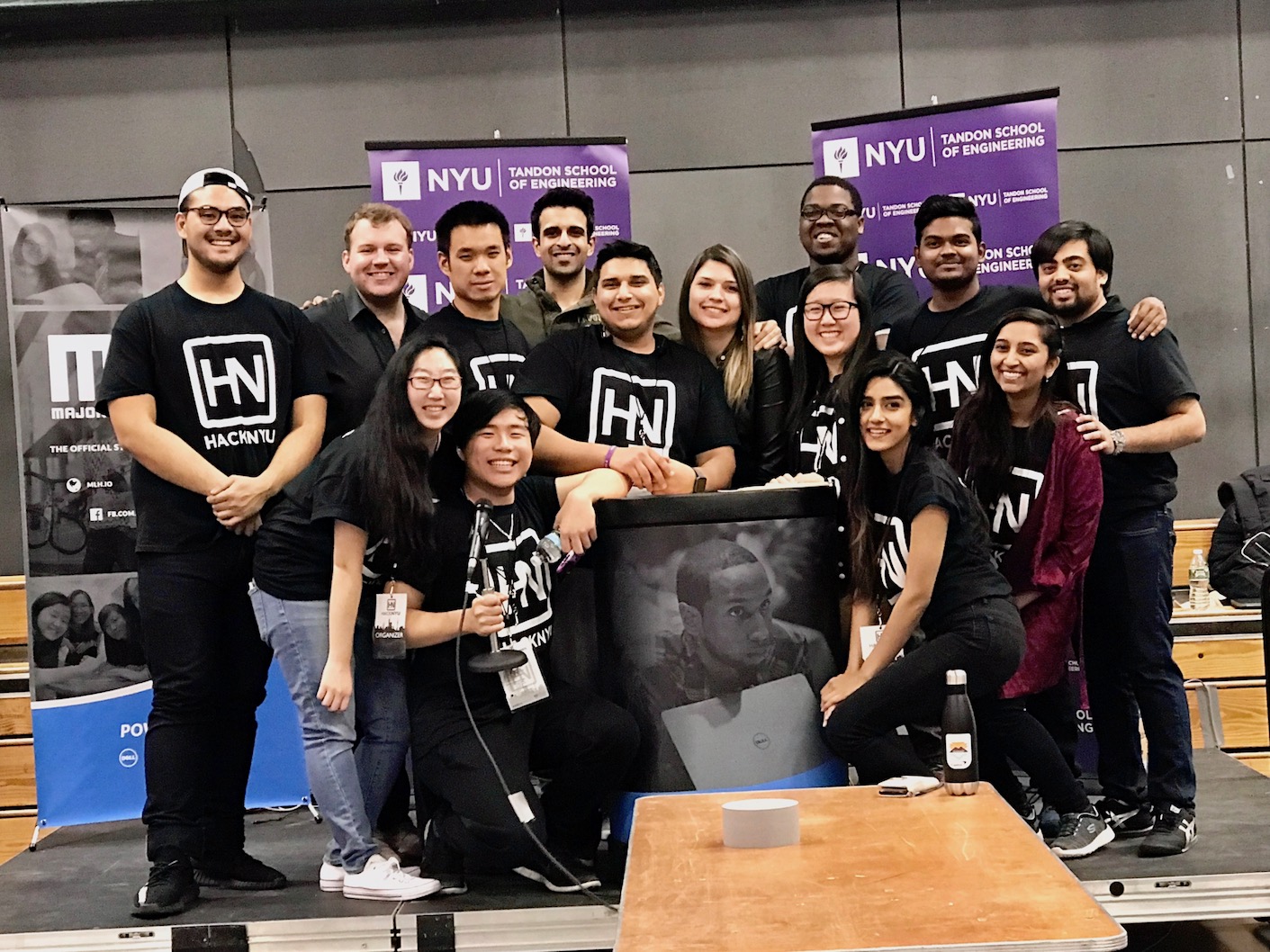The scene at 6 MetroTech Center looked a bit like a science fair, or maybe a job fair — quite befitting a student event. Yet this modest-seeming hackathon had drawn in a trio of developers and designers all the way from Toronto.
“This is a big event for us,” Helen Yin said. She, along with teammates Victor Li and Donald Koo, had developed a Facebook Messenger chatbot for medical diagnoses called ChatMD.
They, along with more than a hundred other teams, created a wide-ranging variety of apps over the course of 48 hours at HackNYU, the hackathon held this weekend at NYU Tandon. The event, run by a 30-person team composed mostly of NYU students, drew some 1,500 registrants across the university’s local campuses as well as its outposts in Shanghai and Abu Dhabi. But as illustrated by Yin, Li and Koo, the appeal wasn’t just limited to students.
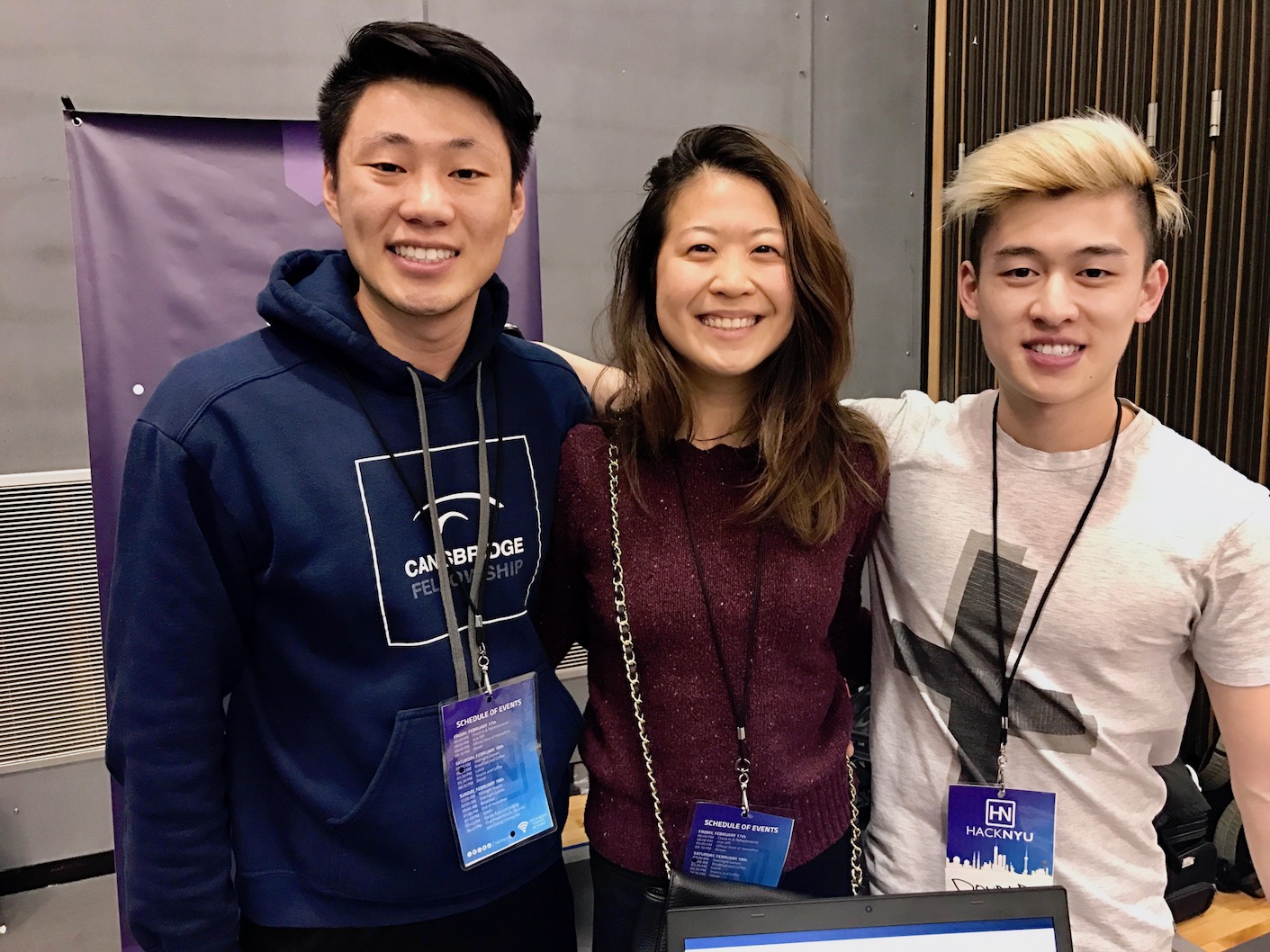
Each of the hackathon’s participants worked within one of four categories: assistive technology, healthcare, education and sustainability and social impact.
The event showcased some sophisticated uses of hardware, with virtual-reality headsets, drones, and wearables among the devices incorporated in several of the projects. Three winners per category were chosen by a panel of judges that included NYU faculty as well as industry representatives. Several companies, including Viacom, Verizon and Amazon, also offered sponsored prizes.
One prize-winning project in the assistive technology category, Alzheimer’s Companion, even bore some similarities to a real-life company, Hacking Alzheimer’s. Quite impressively, it was built by a trio of high schoolers, Jimmy Shi, Xavier Lu and Liz Petrov. (Future interns, perhaps?) Like Hacking Alzheimer’s, a resident company of 1776NY, Alzheimer’s Companion uses an Amazon Echo programmed with Alexa Skills to assist patients in retaining personal information. The team also included the capability of using a Pebble watch to track patients’ movement and alert family members or caregivers if they wandered far away from home.
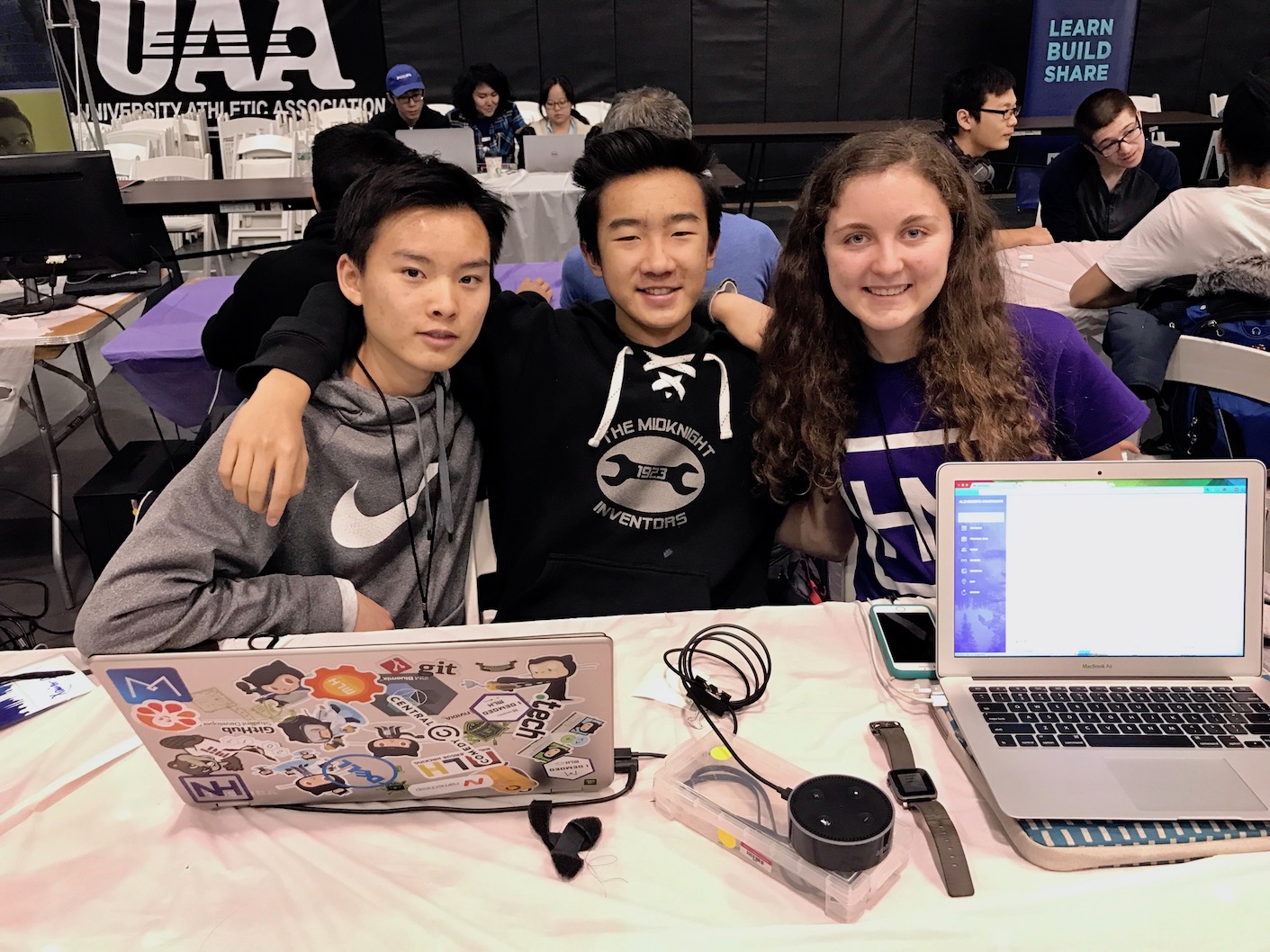
Here are a few other projects we came across at HackNYU:
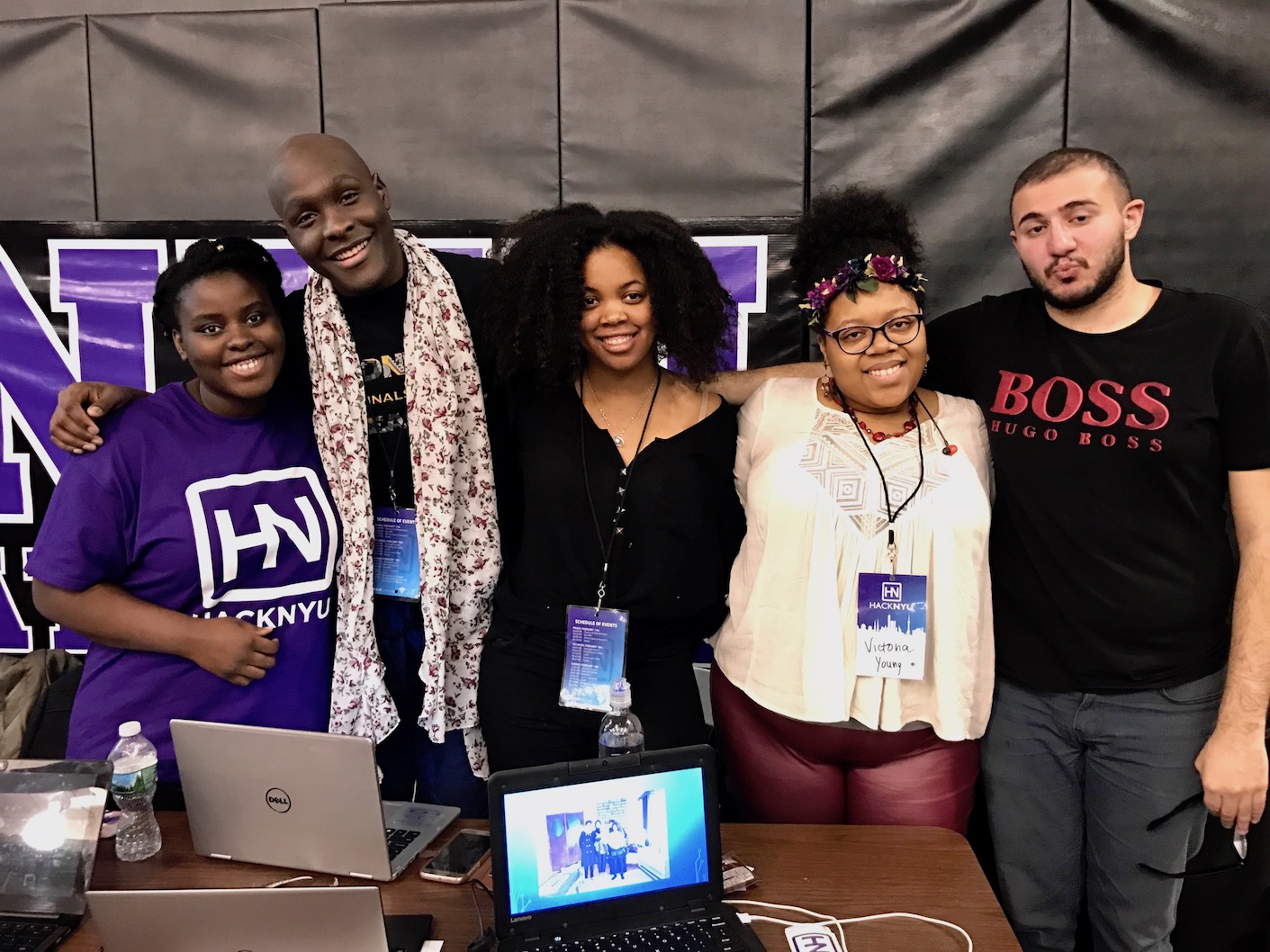
A winner in the sustainability and social impact category, Ologee is a site that simplifies the application process for refugees seeking to enter the U.S. “It’s supposed to be a two-year process, but it’s usually much longer than that,” said Jasmine Williams, one of the team’s members. She is pictured in the center of this photo, along with her teammates (from left to right) Janice Konadu, Malcolm Lewis, Victoria Young and Yakov Gavrilov.
Talk about timely.

Anandini Chawla, Akshay Iyer and Medina Ali (pictured from left to right) developed Safety Champ, a website and app designed to educate young children about sexual abuse: namely, inappropriate touching and what to do about it. Ali explained that if further developed, the site would partner with schools and organizations to increase its reach, especially for children who would otherwise lack access to smartphones or computers.
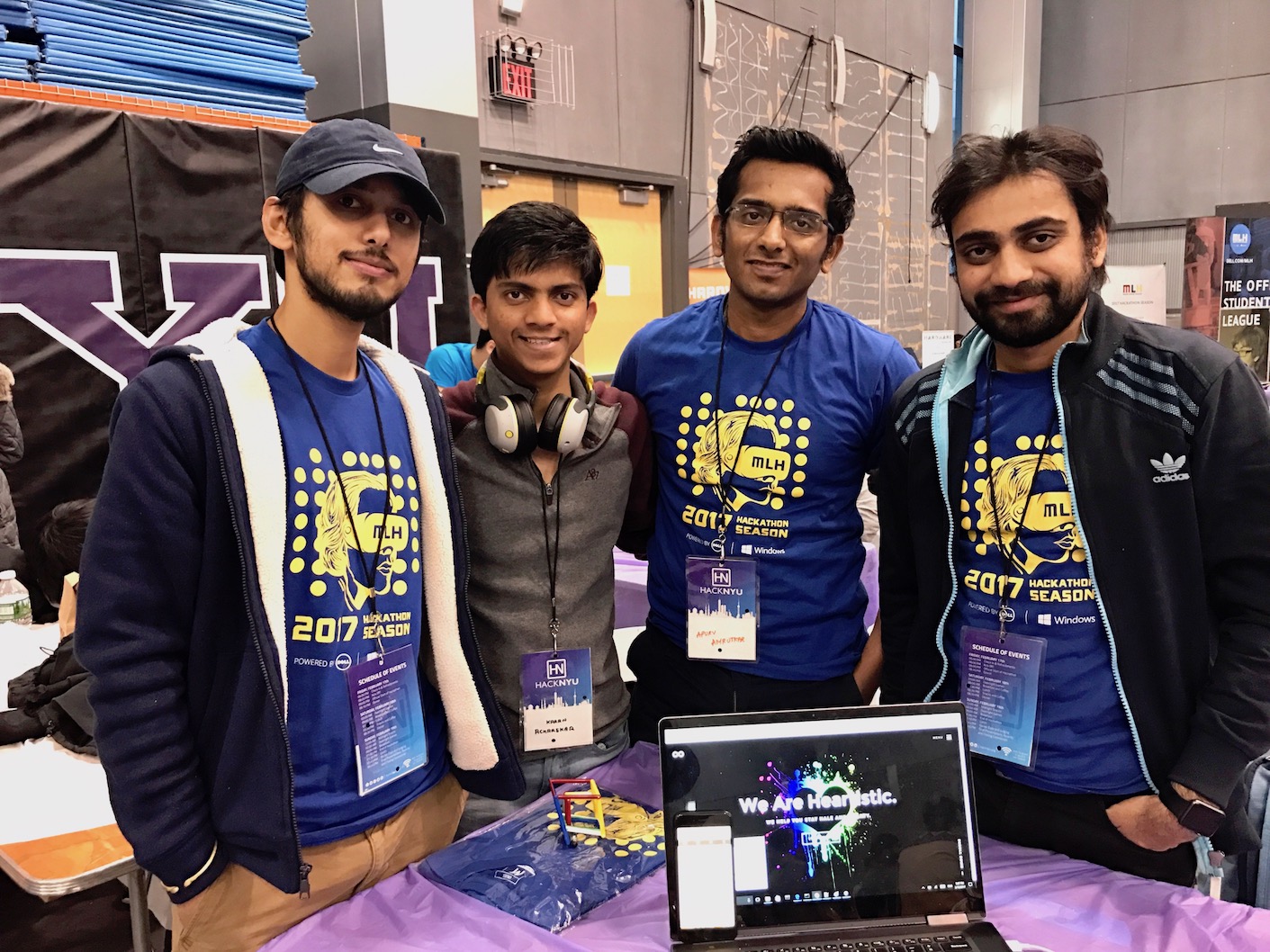
Heartistic is a heart rate monitoring app designed to work with the Apple Watch. Developed by Abhishek Nigam, Karan Acharekar, Apurv Amrutkar and Keyur Baldha (pictured left to right), it tracks the wearer’s vitals and compiles a monthly health report. Heartistic’s goal, said Baldha, is to detect possible warning signs of a heart attack, which are often present up to a week before it actually occurs. The app can also send an alert to a designated contact if there is a sudden aberration in the wearer’s heart rate.

Khalid Khalil, along with Ayman Saleh (not pictured), developed Solaris, a solar-powered drone. Why stick a solar panel atop a drone? According to Khalil, the renewable energy source would ease a range of tasks in rugged environments, such as delivering emergency medical supplies. “When you have a drone that can last longer, the possibilities are endless,” he said.
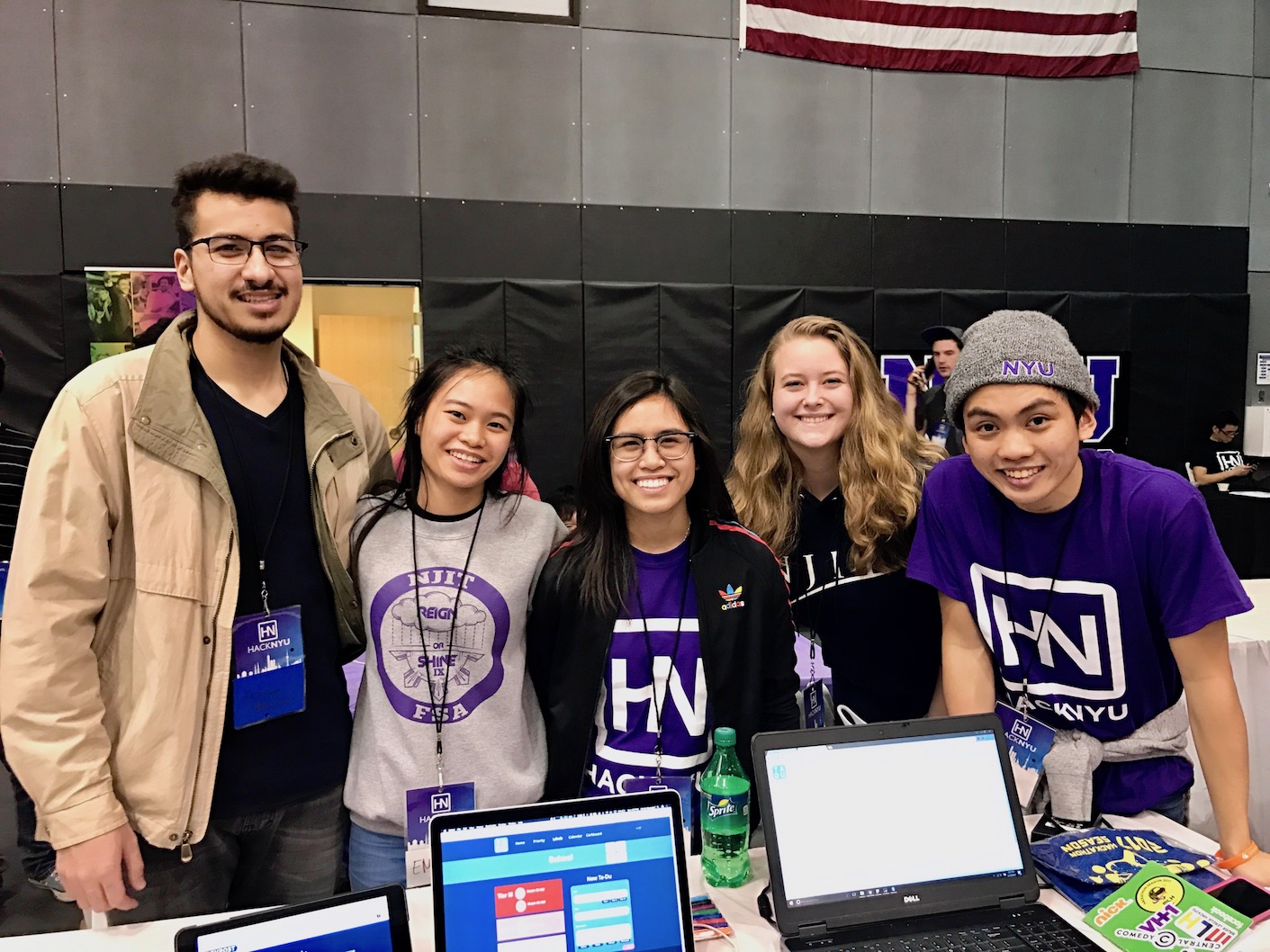
Tadu, a to-do app designed specifically for college students, is the work of Arman Moussaui, Emmalyn Ramos, Reeca Soriano, Megan Rottkamp and Samuel Gomez (pictured left to right). One clever feature of the app: it gradually increases the priority level of tasks the user continually puts off — making it all the more difficult to ignore.
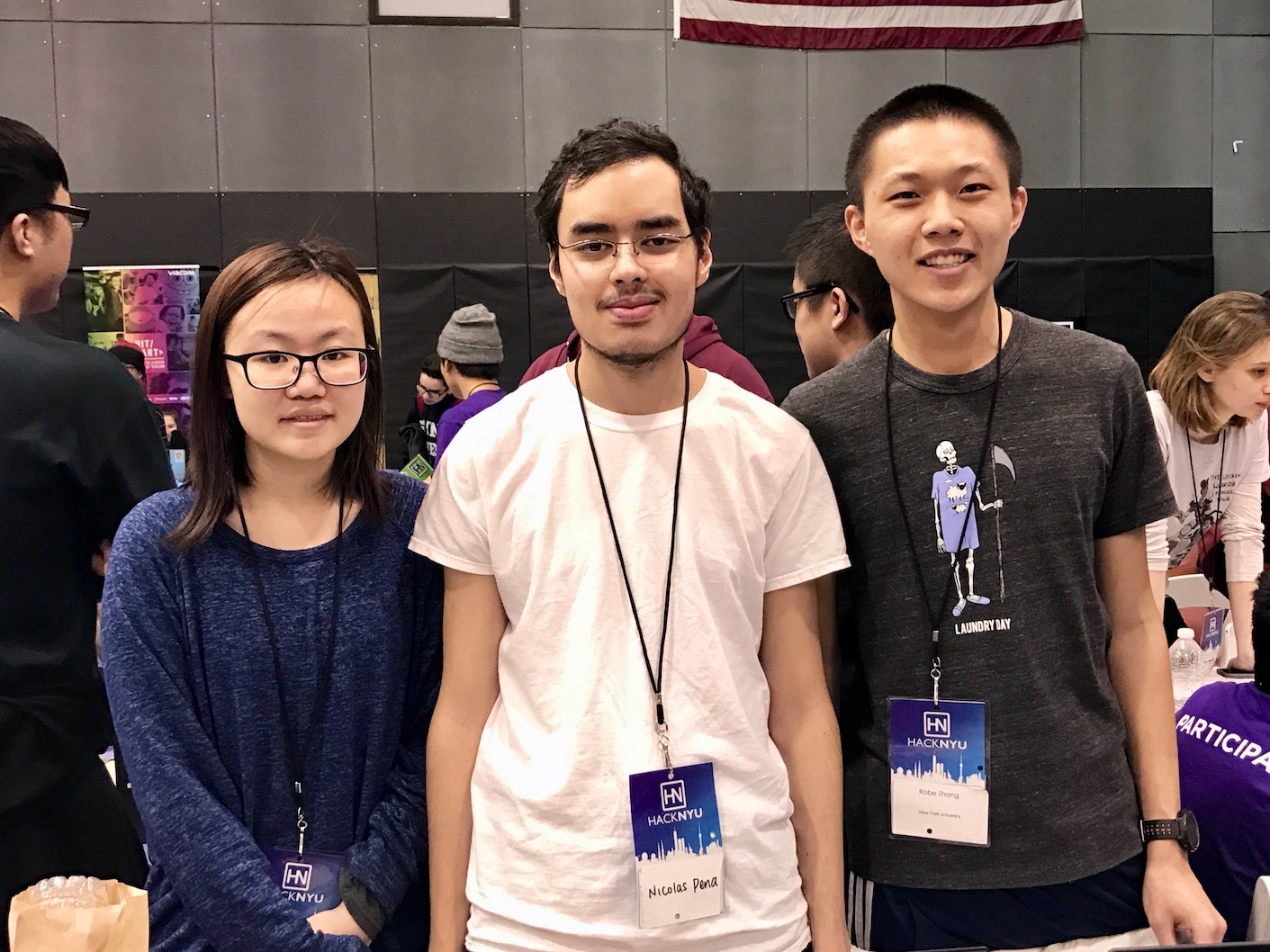
Nicole Cheung, Nicholas Pena and Robe Zhang (pictured from left to right) developed Save A Grade, a web app for scheduling office hours with course instructors. That’s a simple task in itself, but in a future iteration, said Zhang, the app would use artificial intelligence to enable instructors to optimize their schedule — perhaps adding time slots on popular days — according to student demand.
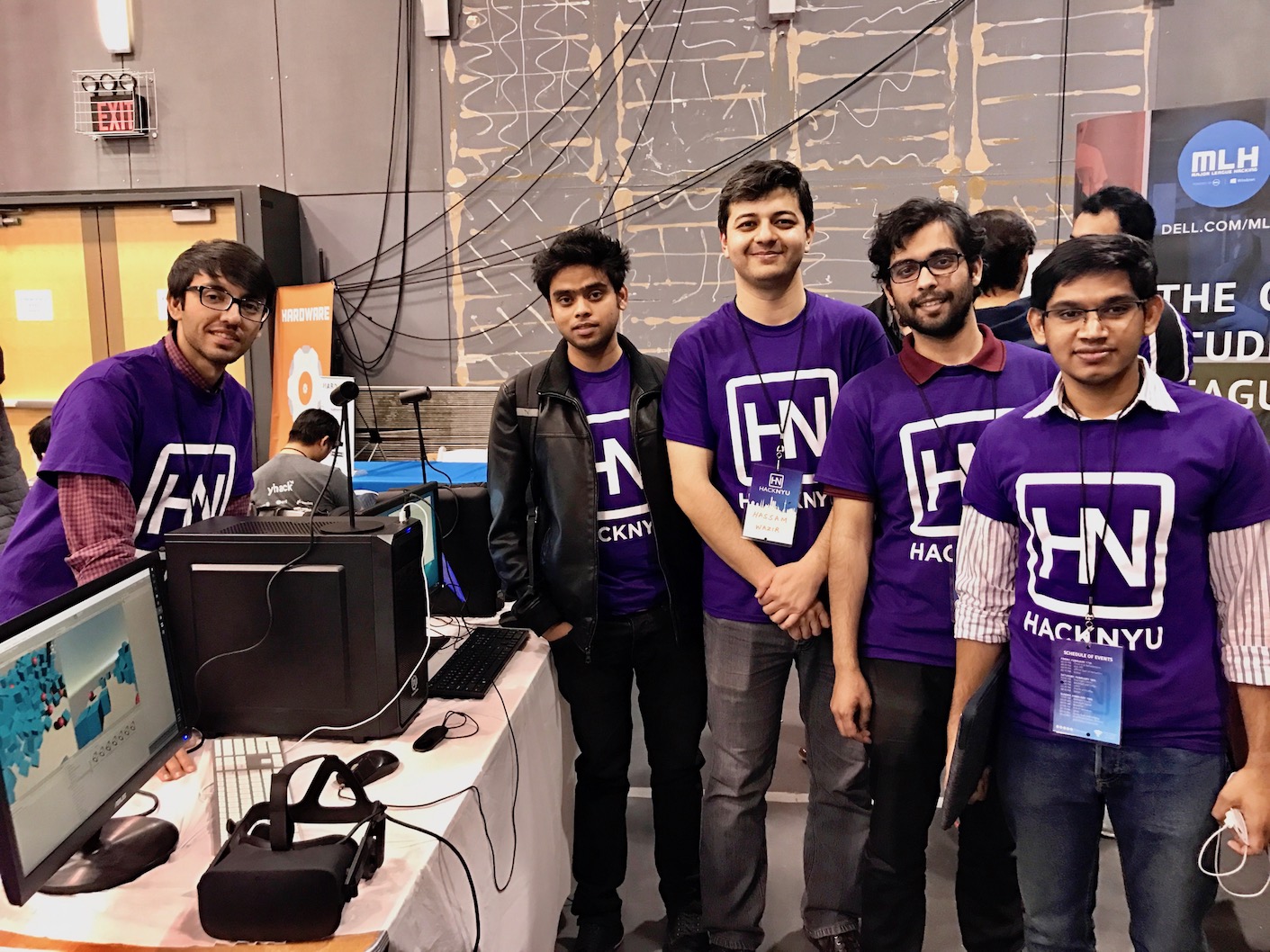
Last but not least, NYU Tandon students (from left to right) Kumar Qazi, Aman Mahato, Hassan Wazir, Saumitra Tiwari and CP Sridhar created Chill Pill, a virtual-reality app for people with post-traumatic stress disorder. The app, which uses Oculus, includes two scenes designed to help users work off stress. In one, the wearer knocks down a wall of blocks with an unlimited supply of balls. In the other, the wearer is immersed in a forest. “There is so much stuff you can do with VR,” Qazi said. “As an assistive technology, it allows people to experience new environments.”

